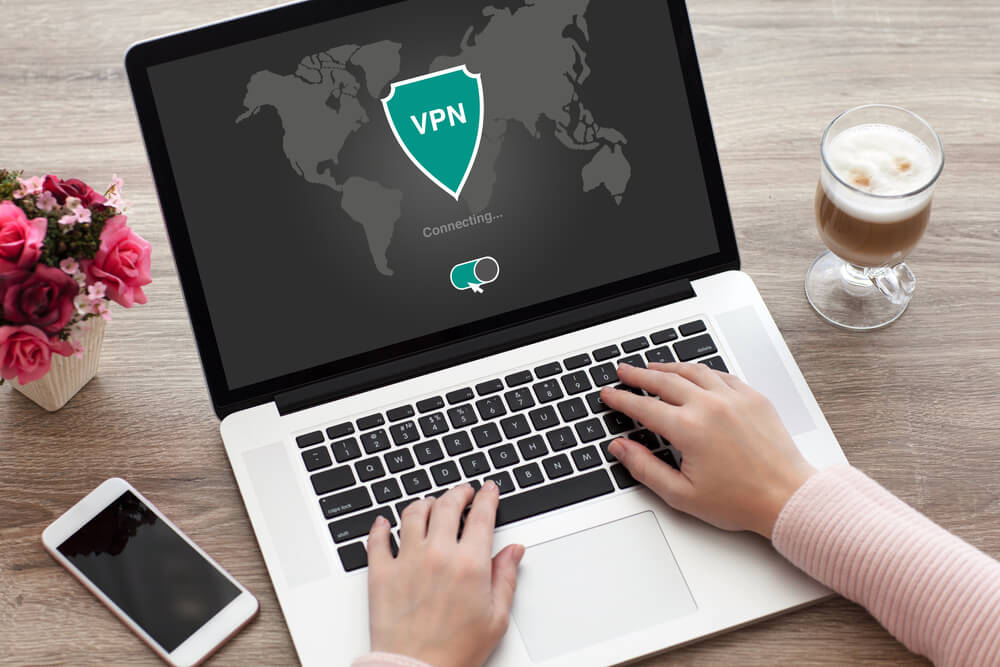 Does your business have a virtual private network (VPN)? While often used for personal privacy protection, it’s become an essential information technology (IT) tool used by millions of businesses throughout the world. Regardless of your business’s industry or what it sells, it can benefit from using a VPN in the five following ways.
Does your business have a virtual private network (VPN)? While often used for personal privacy protection, it’s become an essential information technology (IT) tool used by millions of businesses throughout the world. Regardless of your business’s industry or what it sells, it can benefit from using a VPN in the five following ways.
#1) File Sharing
A VPN simplifies the otherwise tedious process of sharing files. Most email clients limit the size of file attachments, making them an inefficient medium on which to send and receive large or multiple files. Using a VPN, workers can easily share files across your business’s network without worrying about bandwidth limits or other restrictions. Once the VPN has been configured, workers can log in to your network from a remote location to upload or download files.
#2) Cybersecurity
Are you doing enough to protect your business’s sensitive data from cyber threats? According to the Verizon Data Breach Investigations Report, more than half of all U.S. small businesses that suffer a data breach fail within six months. While an effective cybersecurity plan requires a variety of measures, implementing a VPN will strengthen your business’s IT infrastructure to protect against cyber threats and malicious data breaches. It works by encrypting all incoming and outgoing traffic so that third parties can’t intercept it. If a hacker accesses your business’s connection, he or she will won’t be able to see or steal its data.
#3) Online Anonymity
We live in an era in which countless companies track, record and use our information. When you use the internet, for instance, the websites you visit may track your Internet Protocol (IP) address to target you with ads. While typically not malicious, it still raises privacy concerns, especially for businesses. When a worker uses the internet for research, marketing or other purposes, their every move is tracked and recorded. Rather than disconnecting from the internet, though, workers can remain anonymous online using a VPN.
#4) Remote Access
VPNs support remote access so that workers can access your business’s private network securely from any internet-connected computer or device. Using VPN software, which is often integrated into computer operating systems, the worker connects to your business’s network, after which the Remote Access Server (RAS) will attempt to validate his or her credentials. Assuming the worker’s credentials are correct, the VPN will create an encrypted tunnel to your business’s network, allowing the worker to access all its resources as if he or she were directly plugged into the network.
#5) Bypass Regional Filters
It’s frustrating when a worker attempts to visit a website or use a web service, only to discover that his or her geographic location is restricted from accessing it. Countless websites and web services restrict access based on the user’s geographic location. Workers can bypass these regional filters, however, by tunneling their traffic through a VPN. Most VPN services allow choosing from a list of servers in various countries. If you choose a VPN server in Canada, for example, workers using it will have a Canadian IP address. Therefore, you can easily work around regional filters to access websites and services that are otherwise restricted to users in your business’s region.
#6) Instilling Trust and Confidence
Workers will have greater trust and confidence when browsing the internet and accessing your business’s network knowing that their traffic is encrypted with a VPN. This is because all data that’s sent or received over a VPN is scrambled using an encryption algorithm. And when workers have greater trust in their connection, it usually has a positive impact on their productivity levels.
#7) Protection Against Discriminatory Throttling
A VPN can also protect your business from discriminatory bandwidth throttling. Since the Federal Communications Commission (FCC) voted to kill net neutrality rules, Internet Service Providers (ISPs) now have free reign over throttling their customers’ bandwidth. If your ISP doesn’t like the website or service that your business accesses, it may slow down your connection. A simple solution to this problem is to connect to the internet through a VPN. With your business’s internet traffic going through a VPN, its ISP can’t see the sites or services it uses, thus protecting your business against discriminatory throttling.
#8) Cost Savings
Finally, a VPN offers real cost-savings benefits for your business. First, it allows remote access so that workers can work from home. Second, it protects against man-in-the-middle (MITM) cyber attacks that could cause severe, costly damage to your business’s IT infrastructure. Third, VPNs scalable, meaning you can upgrade your VPN service as your business grows and its networking needs increase. Finally, it eliminates the need for an expensive long-distance leased line.
A VPN extends a secure, private network across your business’s internet connection to create a more secure IT environment. In turn, your business will benefit from file sharing capabilities, increased cybersecurity, online anonymity, remote access and more. So, the better question to ask is why shouldn’t you use a VPN?
More About CP Cyber
CP Cyber is a full service cyber security consulting firm helping our clients uncover risks and build top of the line defenses to prevent cyber crimes. To find out more about us visit our homepage here: https://cpcyber.com/ or follow our Colorado Cyber Security Google Page.

